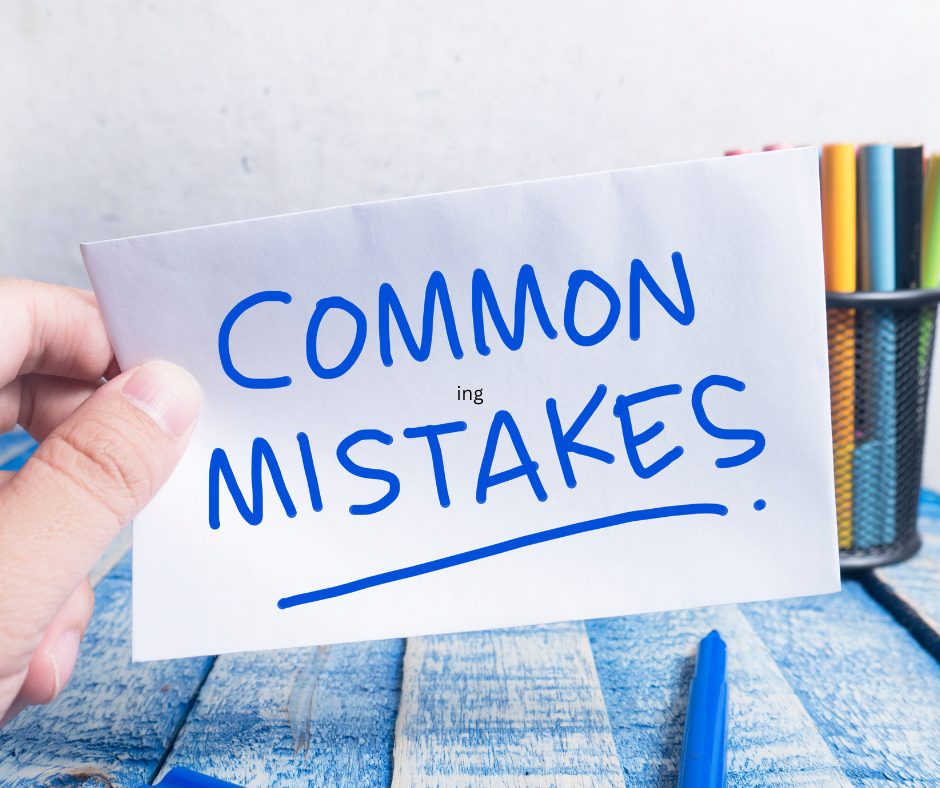Today, I want to talk about social anxiety, a topic many of us deal with but don’t often discuss. According to the World Health Organization, social anxiety affects millions of people worldwide.
So let me start by asking – Have you ever felt nervous or uneasy in social situations at work? Imagine being at a company event, surrounded by colleagues and clients, and you feel your heart racing, your palms sweating, and your mind filled with worries about how others see you.
If you can relate, you’re not alone. Social anxiety is common and affects many people, including accountants. It’s something I’ve experienced too.
If you’re not sure if you have social anxiety, think about this: do you worry about how others perceive you during client meetings or networking events? For accountants, the pressure to perform and maintain professionalism can be overwhelming.
For example, the holidays bring many social events – company parties and client gatherings – that can increase anxiety. But social anxiety isn’t limited to any time of year; it can happen anytime, in person or online.
How about this: Do you often replay social interactions in your mind, wondering if you said or did the right thing? For accountants, this anxiety can be intensified by the high expectations and critical nature of our profession. The need for accuracy and precision can make any social misstep feel like a significant blunder, adding to the stress.
In today’s world, where virtual meetings are as common as in-person ones, social anxiety has found new ways to manifest. Speaking up in a Zoom meeting can be just as daunting as doing so in a conference room. Technology doesn’t always reduce the pressure; for some, it can even increase it.
When you Google social anxiety, you might find many suggestions for stress-relieving medications or therapies. While these can be helpful, it’s also important to understand the root causes of social anxiety.
The good news is that social anxiety is manageable. You don’t have to avoid social situations or rely solely on medication to cope. By understanding the causes of social anxiety and adopting practical strategies to manage it, you can navigate social interactions with more confidence and ease.
In today’s episode I want to dive into what causes social anxiety and how you can deal with it more effectively. I’m going to explore the specific challenges accountants face and provide practical tips to help you manage anxiety in various professional settings.
Whether you’re attending a client meeting, a networking event, or a team gathering, you can learn to handle social anxiety in a way that empowers you rather than hinders you. Let’s look at what causes social anxiety for accountants.
Social Anxiety Triggers For Accountants
The truth is that social anxiety is more than just feeling a bit shy or nervous in social situations. It’s often a persistent and intense fear of being judged, negatively evaluated, or rejected in a social or performance situation.
This fear can sometimes be so severe that it interferes with your daily activities, work, and relationships. Personally, being a classic introvert, I’ve had my fair share of dealing with social anxiety in many situations.
In my experience, it’s not just about feeling uneasy; it comes with physical and psychological symptoms, from my heart racing, to my palms sweating, or even feeling like I’m going to be sick.
Psychologically, the intense worry about upcoming social situations, the overwhelming fear of embarrassment, and the strong urge to avoid these scenarios altogether can take a huge toll.
As an accountant, certain professional scenarios can be particularly nerve-wracking. Here are some common triggers:
Client Meetings: The pressure to present accurate and comprehensive financial data can be intense. You might worry about making mistakes or not meeting client expectations. It’s a lot to handle, especially if you’re already prone to anxiety.
Networking Events: These can be especially problematic. The need to make small talk, present yourself professionally, and leave a good impression on potential clients or partners can be a major source of stress. It feels like you’re constantly under a microscope.
Team Gatherings: Even within your own organization, social events or meetings can trigger anxiety. Speaking up in meetings or interacting with higher-ups can make your heart race.
Presentations: Public speaking is a common fear for many of us. It’s like all eyes are on you, waiting for a slip-up.
While social anxiety is uncomfortable and sometimes embarrassing, understanding these triggers is crucial because it’s the first step toward managing it. When you know what sets off your anxiety, you can start to develop strategies to cope with it.
Bottom line: by addressing these triggers head-on, you can take control of your anxiety instead of letting it control you.
The Causes of Social Anxiety
It might be uncomfortable, but understanding the causes of social anxiety can really help. Besides the typical triggers that I just shared, it’s important to understand that one of the main causes is how we think about and perceive social interactions.
The truth is, if you’ve got social anxiety, you probably have a bunch of negative thoughts making social situations seem way scarier than they are. For example, you might catch yourself thinking, “Everyone is going to notice if I make a mistake,” or “People will think I’m incompetent.”
These thoughts can create a self-fulfilling prophecy. How? Well, when you expect to be judged or embarrassed, you might get so nervous that you actually stumble over your words, which then makes you think, “See, I knew I’d mess up!”
Another big factor is negative self-talk. This is that little voice in your head that keeps criticizing you and expecting the worst.
Thoughts like “I’m going to mess up” or “They’ll think I’m boring” are common. Unfortunately, this kind of thinking ramps up anxiety and makes social interactions even tougher.
There’s also something called projection. This is when you assume that others are thinking the same critical thoughts about you that you have about yourself.
For example, if you’re self-conscious about your appearance, you might believe others are judging you negatively too, even if they’re not.
Since my cancer diagnosis and losing my hair once I started chemo, I had to have my head shaved. Even though I’ve been wearing bandanas and cute hats, my brain keeps believing that others are judging me negatively because I’m not fully comfortable with the effects of chemo myself.
But it’s not just about our thoughts. There are biological and psychological factors at play too. Here’s a quick rundown:
Biological Factors – Genetics can play a role. If social anxiety runs in your family, you might be more prone to experiencing it. Plus, brain chemistry and how neurotransmitters like serotonin function can affect anxiety levels.
Psychological Factors – Past experiences, such as bullying, rejection, or humiliation, can contribute to social anxiety. These experiences make you more sensitive to the possibility of the same thing happening in the future.
Evolutionary Perspective – From an evolutionary standpoint, being tuned into social cues and seeking social approval had survival advantages. In other words, being accepted by the tribe was important for our survival. But in today’s world, this can show up as excessive worry about social acceptance and fear of rejection.
Understanding all this can help you see that social anxiety isn’t just about “being shy” or “lacking confidence.” It’s often a mix of how we think, our past experiences, and our biology.
So what’s the good news? By working on both the mental and emotional aspects of social anxiety, you can find ways to manage and reduce its impact on your life. Next, let’s explore how your brain plays a part in social anxiety.
Your Brain’s Role in Social Anxiety
As I’ve shared numerous times, this is the place where brain science meets accounting. That’s why I think it’s important to understand your brain’s role in social anxiety.
First off, your brain has a built in alarm system called the primitive brain or what I refer to as The Toddler. It’s the part of your brain that gets activated when you feel threatened.
When you’re about to speak in a meeting or meet new people, and you start feeling anxious, that’s your Toddler brain kicking into gear. It sends out alarms that make your heart race and palms sweat, preparing you to either fight or run away.
For those of us with social anxiety, this alarm system is extra sensitive, even when there’s no real danger.
Thankfully, we also have the higher brain that I refer to as The Supervising Parent. This part of the brain helps you think things through and decide if something is really a threat. It’s like the brain’s manager, keeping the alarm system, the Toddler, in check.
But if you have social anxiety, your higher, Supervising Parent part of your brain might struggle to calm things down, making you feel more anxious than necessary.
It’s also important to know that your brain uses chemicals called neurotransmitters to send signals. Two key players here are serotonin and dopamine.
Serotonin helps regulate your mood and anxiety levels. If you don’t have enough serotonin, you might feel more anxious.
Dopamine is linked to how you feel pleasure and reward. If dopamine levels are off, it can affect how anxious you feel in social situations.
As I said before, from an evolutionary standpoint, our ancestors had to stay in groups to survive. Being part of a group meant protection and resources, so they were very attuned to social cues and approval.
Fast forward to today, and this survival mechanism can make us overly worried about social acceptance and rejection. This is why you might feel anxious about being judged or not fitting in.
The truth is that when you have social anxiety, your brain often defaults to negative thoughts like “Everyone is judging me” or “I’ll mess up.” These thoughts become habits and reinforce your anxiety. Your brain gets used to these patterns, making it hard to think positively without conscious effort.
But, here’s the good news: your brain can change! This ability is called neuroplasticity.
With practice, you can create new, healthier thought patterns. This is part of what I work on with my coaching clients in The Smarter Accountant Program – teaching them how to rewire their brain.
By using The Supervising Parent part of the brain more intentionally, it retrains their brain to handle social situations with less anxiety.
The truth is that understanding how your brain works can help you see that social anxiety isn’t just about being shy or lacking confidence. It’s about how your brain processes and reacts to social situations.
The best part is, you can train your brain to respond differently, reducing the impact of social anxiety on your life. Now that we understand the brain’s role in social anxiety, let’s look at some strategies to manage it.
Strategies to Manage Social Anxiety
In order to handle social anxiety, the first strategy is to recognize the signs. These can include physical symptoms like a racing heart, sweating, or trembling, and psychological symptoms like intense worry, fear of embarrassment, and a strong desire to avoid social situations. The more you understand these signs, the better prepared you’ll be to address them.
It’s also important to accept that social anxiety is a common experience. Many people feel the same way, even if it doesn’t always seem like it.
I promise you, in a room of 10 accountants, there are at least two or more who have varying degrees of social anxiety. The truth is that accepting that social anxiety is a part of your life can help you stop fighting it and start finding ways to manage it.
The second strategy is to challenge negative thoughts and beliefs. When you catch yourself thinking, “They’re not going to like me,” or “They’re going to judge me,” question these thoughts.
Are they really true? Often, you’ll find that these fears are exaggerated or unfounded.
Since losing my hair I’ve learned to use the concept of projection in a positive way. For example, if I retrain my brain to think something like, “I’m beautiful whether I have hair or not” then I project that onto other people and assume they’re thinking the same thing about me.
It’s amazing what’s possible when you learn how to manage your brain!
The third strategy is, instead of focusing on negative outcomes, try to reframe your thoughts to be more positive and realistic. For example, instead of thinking, “I’ll definitely embarrass myself,” try thinking, “I’ve prepared well, and I’ll do my best.”
This shift in perspective can reduce anxiety and help you feel more confident.
Here are some practical techniques that might help:
Deep Breathing and Relaxation Exercises – simple techniques like deep breathing and relaxation exercises can do wonders for reducing anxiety. Practice taking slow, deep breaths to calm your nervous system. You can also try progressive muscle relaxation, where you tense and then relax different muscle groups in your body.
Mindfulness and Meditation Practices – mindfulness and meditation can also help you stay present and reduce anxiety. Mindfulness involves paying attention to the present moment without judgment, which can help you break free from negative thought patterns. Meditation can also help you relax and center yourself before social interactions. Apps like Calm and Headspace are super helpful.
Gradual Exposure to Social Situations to Build Confidence – gradually exposing yourself to social situations can help build confidence over time. Start with smaller, less intimidating situations and work your way up to more challenging ones. This gradual exposure can help you become more comfortable in social settings.
I’ve recently decided to seek out speaking opportunities in order to gradually expose myself to social situations and build confidence. The more I can desensitize myself, the easier it will be to be able to feel a little more comfortable.
Also, one of the most helpful things for me is preparing for social interactions in advance. The truth is that preparation can make a big difference in how you feel about social interactions.
If you’re nervous about a meeting or event, take some time to prepare. Think about what you want to say and how you want to present yourself. The more prepared you feel, the less anxious you’ll be.
Another suggestion is to set small, achievable goals for yourself in social situations. Instead of aiming to be the life of the party, set a goal to have one meaningful conversation or to introduce yourself to someone new.
In fact, I heard someone share once that they make a game out of having a certain number of meaningful conversations during a social setting and once they’ve hit their mark, they give themselves permission to leave if they want. I love this idea because it helps you to achieve small goals and can build your confidence over time.
For me, it’s often setting a goal to stay for a specific amount of time, but to always have my own car so that I don’t feel trapped. Knowing there’s an end point in mind makes it easier for me to relax in social situations.
I once heard author Glennon Doyle share that if she’s invited to a party and there’s no start and end time, she’s less likely to say yes. Again, the thought of no end in sight can just be too overwhelming when you deal with social anxiety.
Another suggestion is having a good support system. Be willing to talk to mentors, colleagues, or friends who understand what you’re going through.
There’s no reason to be ashamed. Reaching out to others can provide support, advice, and encouragement, helping you feel less alone and more capable of managing social anxiety.
Hopefully you can see that by incorporating these strategies into your routine, you can start to manage social anxiety more effectively and feel more confident in social situations. Remember, it’s a journey, and it’s okay to take small steps along the way.
With these strategies in mind, let’s move on to becoming a smarter accountant by effectively handling social anxiety.
Becoming a Smarter Accountant: Handling Social Anxiety
Now let me share how one of my coaching clients was able to become a Smarter Accountant and handle social anxiety.
She was an experienced accountant with over a decade in the field, but found herself struggling with social anxiety, especially in professional settings. Despite her technical expertise, she dreaded client meetings and presentations.
The thought of speaking in front of a group made her heart race and palms sweat. She often found herself avoiding networking events and team gatherings, which affected her career growth and professional relationships.
She felt isolated and frustrated, knowing her anxiety was holding her back.
Once we started working together, she decided to tackle her social anxiety head-on. Through our sessions, we focused on several key areas like awareness, mindset, and practical techniques.
First, she learned to recognize her anxiety triggers and accept that social anxiety is a common experience. This helped her feel less alone and more in control.
Next, we worked on challenging her negative thoughts and reframing them into positive, realistic ones. For example, instead of thinking, “I’ll embarrass myself,” she practiced thinking, “I’m prepared, and I can handle this.”
Next, she started practicing deep breathing exercises and mindfulness to calm her nerves before meetings. She also used gradual exposure techniques to build her confidence in social situations.
Lastly, we developed a strategy for her to prepare thoroughly for client meetings and set small, achievable goals for networking events.
Over time, her confidence grew. She started participating more actively in team meetings, attended networking events, and even led a successful client presentation.
As her confidence grew, she not only improved her professional relationships but also opened up new career opportunities. She shared that she now feels empowered and ready to take on social challenges with a positive mindset.
Bottom line: Handling social anxiety is more manageable than you might think when you’re willing to ask for help.
Key Takeaway and Action Item
Social anxiety is something many of us deal with. Understanding that not only is it common, but that it’s rooted in our thoughts, biology, and past experiences can be really empowering.
Ask yourself, “What specific thoughts or situations trigger my social anxiety, and how can I reframe my thinking to manage it more effectively?”
Hopefully you can see that while everyone’s experience with social anxiety is unique, the first step to managing it is becoming aware of it and accepting it. Recognize that you have the power to change how you think and react.
Embrace this insight, and let it guide you to find your own ways to handle social situations with more confidence. Your journey is personal, but you’re not alone in it.
Well, that’s what I have for you. Thank you for joining me as I discussed how to handle social anxiety. I hope you’ve gained valuable insights and practical tools.
As I share all the time, you worked hard to become an accountant; it’s time to make it easier to be one.
If you are struggling with any aspect of being an accountant, you can simply go to www.thesmarteraccountant.com/calendar and book a free session with me.
And make sure you download The Smarter Accountant Podcast Guide. This one-of-a-kind guide will help you not just passively listen to the podcast, but actually do something with what i teach in each episode. To download the podcast guide, simply to go https://thesmarteraccountant.com/podcast-guide/
Make sure you go to www.thesmarteraccountant.com and take The Smarter Accountant Quiz. You’re going to want to know if you’ve been underutilizing your accountant brain so that you have a starting point for becoming a Smarter Accountant..
Also, I would appreciate it if you could get the word out to other accountants about this podcast. The more accountants find out about it, the more we can begin to change the narrative in the accounting profession.
The truth is that you’re already smart, but this podcast will show you how to be smarter.









